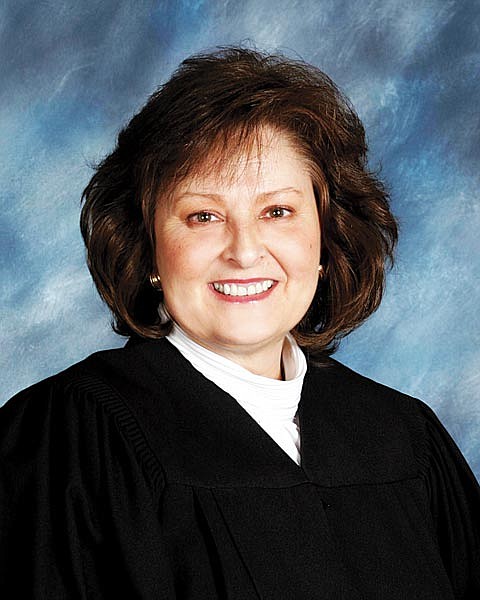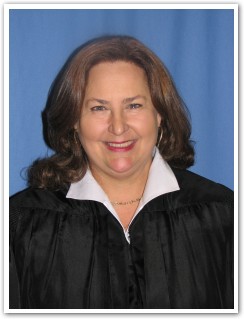As we continue our Women's History series, the spotlight shifts to the first two women elected to Hamilton County's courts: Juvenile Court Judge Suzanne Bailey and Circuit Court Judge Marie Williams. With their elections, the gate to the bench sprung open to a new era of judicial practice.
In 1982, the late Juvenile Court Judge Dixie Smith chose Suzanne Bailey as a referee for Hamilton County's Juvenile Court. Bailey, a native of Columbia, Tennessee, had earned her undergraduate degree at Vanderbilt University and then, in 1972, moved to the University of Tennessee to pursue her law degree. When she enrolled, there were fewer than a dozen women among the 160 freshmen, and she would later admit that the first quarter was a difficult one. Even though she twice considered leaving law school, Suzanne Bailey refused to allow external factors to change her career course. By graduation day in 1975, Suzanne Bailey had become the first woman elected as president of the UT Bar Association, and she was ready to enter another world dominated primarily by men - the practice of criminal law. And, then, an unexpected case would change her trajectory.
One of Bailey's first cases would involve juvenile defendants, and her goal changed. She immediately petitioned to join the appointment list for juvenile court. She had found her niche and would became a champion for young offenders who would find themselves in her court, first as referee and then as the first woman elected to a Hamilton County court in 1990, following Judge Smith's retirement.
Judge Bailey seldom minced words when discussing the changes in juvenile offenses from the 1970s until her retirement in 2013. Where once the docket had been dominated by mischief cases, it grew to include homicide, burglary, gang activity and rape. With a sense of frustration, the judge noted in an interview that "children are coming home to an empty house, their parents are either working or they are on drugs. We're failing to prioritize the needs of our children."
Their stories tugged at her heart. After one particularly painful case, she found herself admitting, "But for the grace of God, I could be sitting on either side of this courtroom " Attorneys recall her serious interest in each case and her attempts to offer advice and encouragement, reminding each child that where one's journey ended was far more important than where the journey began.
When Judge Marie Williams was named the 2016 Lioness of the Bar by the Southeast Tennessee Lawyers Association, few were surprised. Marie Williams' strict adherence to the law, her dedicated service on the bench and her extensive philanthropy had earned her the respect of the region's attorneys and judiciary.
Williams, the daughter of one of Hamilton County's most respected attorneys, the late Silas Williams, earned her own place in legal history. A native of Lookout Mountain, she graduated from University of Tennessee-Knoxville and the University of Georgia Law School, returning home to practice law for 18 years before her 1995 appointment as a Circuit Court judge. The first woman to hold that title, she was elected to the bench in 1996 and has won re-election each cycle. Her current term ends in 2022.
Judge Williams' reputation includes a demand for civility and thorough preparation by the attorneys in her court. A continual student of the law, she is reported to have one of the lowest reversal rates of any of the Hamilton County courts. Her standard question, recalled by friend Sandi Bott, is 'What does the law say?' Williams is innovative, credited with having introduced the concept of "a joint parenting plan" for divorcing spouses that is now Tennessee law. As an advocate for greater jury participation in the legal process, Williams served on the Jury Reform Pilot Project, observing that the jury is critical to the balance of power in our Republic.
After more than 30 years seeking and administering justice in a civil society, Judge Williams' leadership continues to resonate with citizens. As she once observed, "A leader must first commit to the values and mission and then lead with integrity and passion." Leaders must "listen carefully" and be certain that their "actions speak as articulately as their words. Leadership is an exercise in responsibility. A leader is farsighted and attempts to predict and prevent problems." According to her colleagues and friends, this definition easily describes Hamilton County's first female Circuit Court Judge, the Honorable Marie Williams.
Linda Moss Mines, Chattanooga-Hamilton County historian and regent of the Chief John Ross Chapter, NSDAR, is a member of the Tennessee Historical Commission.

